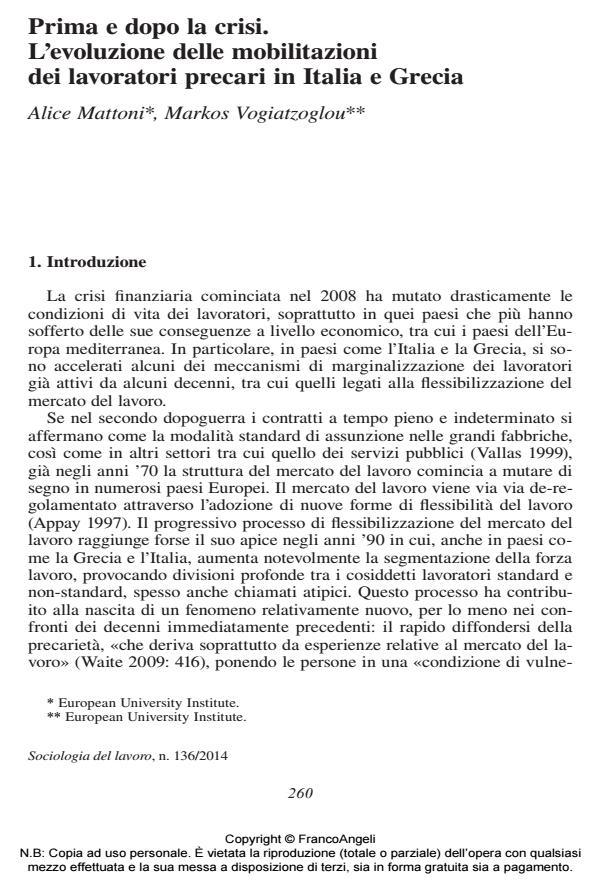Before and after the crisis. The evolution of the mobilizations of precarious workers in Italy and Greece
Journal title SOCIOLOGIA DEL LAVORO
Author/s Alice Mattoni, Markos Vogiatzoglou
Publishing Year 2014 Issue 2014/136
Language Italian Pages 16 P. 260-275 File size 134 KB
DOI 10.3280/SL2014-136014
DOI is like a bar code for intellectual property: to have more infomation
click here
Below, you can see the article first page
If you want to buy this article in PDF format, you can do it, following the instructions to buy download credits

FrancoAngeli is member of Publishers International Linking Association, Inc (PILA), a not-for-profit association which run the CrossRef service enabling links to and from online scholarly content.
The paper presents a cross-time and cross-country comparison of precarious workers’ by contrasting the struggles against precarity in Italy and Greece before and after the financial and economic crisis. The article’s starting point is an examination of the changes that characterized the broader context in which precarious workers mobilizations developed in the past years. Then, the emphasis is put on the transformations characterizing the precarious workers’ mobilizations before and after the economic crisis in the two countries. Three relevant points emerge from the analysis presented in the paper which are further discussed in the conclusions: first, it is argued that the meaning the working place has for precarious workers and their struggles, is less and less relevant for the organization of mobilizations; second, several changes are to be noted, with regard to the repertoire of contention. The latter, especially after the financial and economic crisis, is now expanding beyond the contentious collective action; finally, the complexity of the meaning that traditional trade unionism, its concepts and practices, maintains for precarious workers, is brought forward.
Keywords: Precarious workers, mobilization, trade unions, Italy, Greece, economic crisis
Alice Mattoni, Markos Vogiatzoglou, Prima e dopo la crisi. L’evoluzione delle mobilitazioni dei lavoratori precari in Italia e Grecia in "SOCIOLOGIA DEL LAVORO " 136/2014, pp 260-275, DOI: 10.3280/SL2014-136014